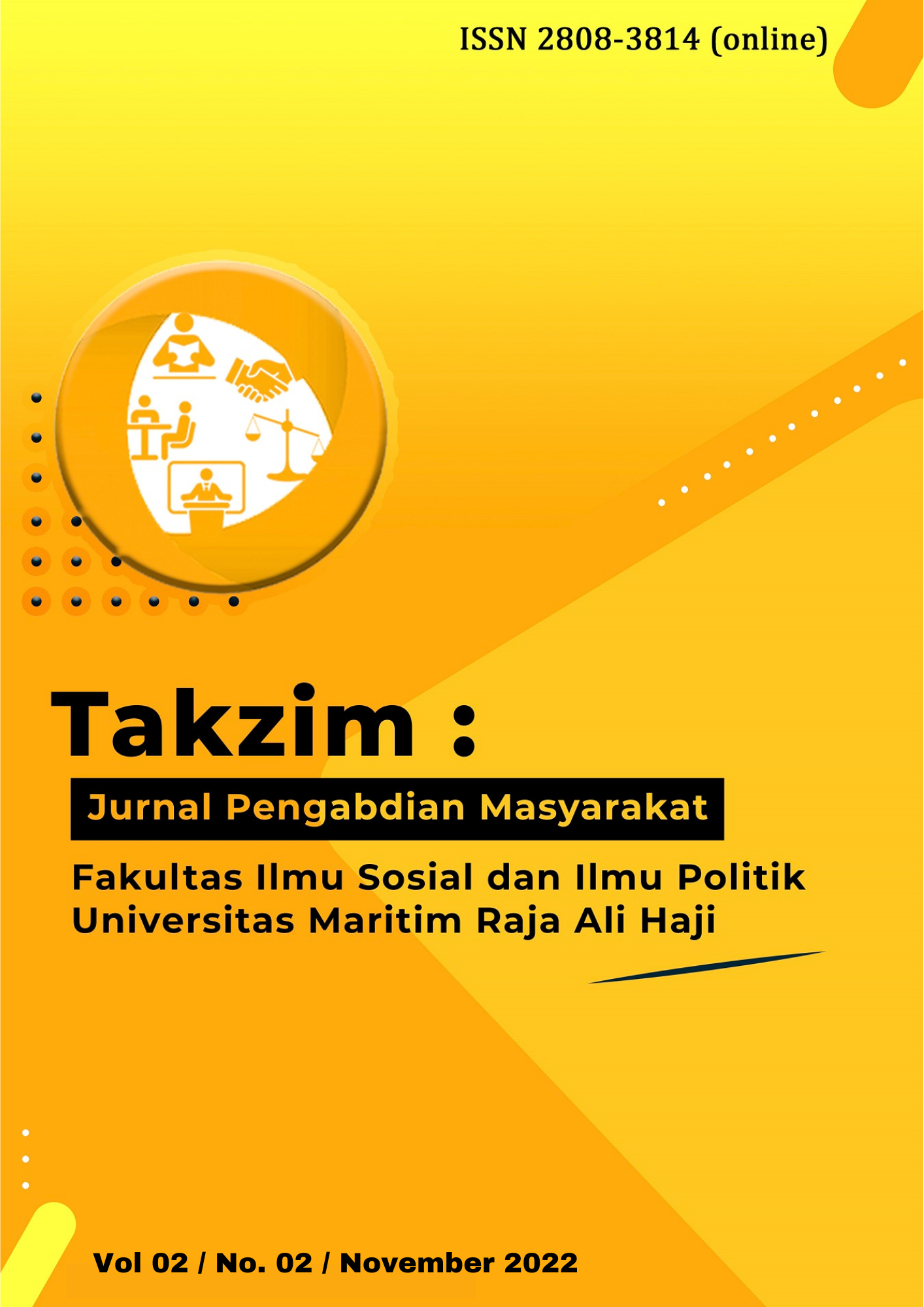OPTIMALISASI PENGELOLAAN WEBSITE DESA RESUN PESISIR KABUPATEN LINGGA
DOI:
https://doi.org/10.31629/takzimjpm.v2i2.5066Keywords:
Village Government, Village Website, E-governmentAbstract
Community Service was held in the Coastal Resun Village, Lingga Regency. The purpose of this community service is to increase the knowledge and expertise of village officials in managing village websites. The method used is to provide assistance to the coastal resun village apparatus with implementation procedures; identification of partner needs, formulation of partner needs, and assistance in website optimization. The implementation time starts from October to November 2022. This activity is divided into three stages, namely; identification of problems, provision of discussion materials and assistance to village officials. The results of this activity are; The impact on increasing participants' knowledge and expertise on the importance of internet-based information services and in operating village websites, the village government immediately appointed employees who specifically managed the village website and village officials were very enthusiastic and immediately published news and expected ongoing guidance
References
Indrajit, R. E. (2006). Electronic Government Konsep Pelayanan Publik Berbasis Internet dan Teknologi Informasi. XIX, 1–93.
Nuraini, H., Larasati, E., Suwitri, S., & Nugraha, H. S. (2021). Pengembangan Smart Village Sebagai Upaya Menjalankan Badan Usaha Milik Desa (BUMDes) Pada Masa Pandemi Covid-19. Briliant: Jurnal Riset Dan Konseptual, 6(4), 862. https://doi.org/10.28926/briliant.v6i4.777
Suwaryo, U. (2020). Pengembangan Desa Berbasis Smart Village. 6, 450.





